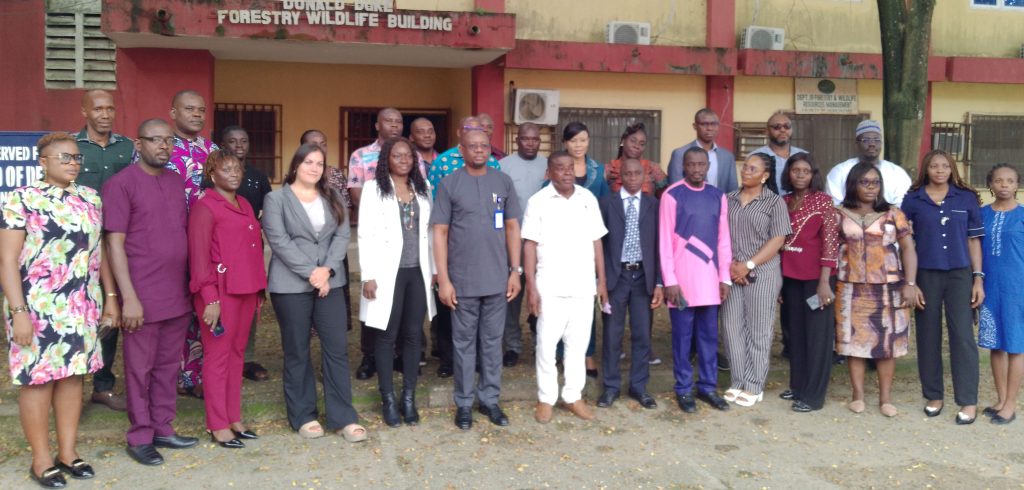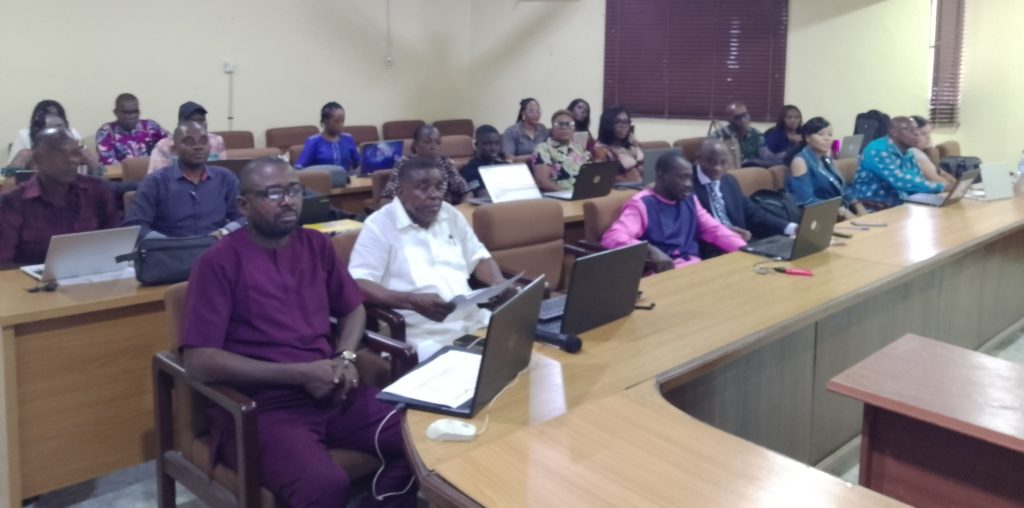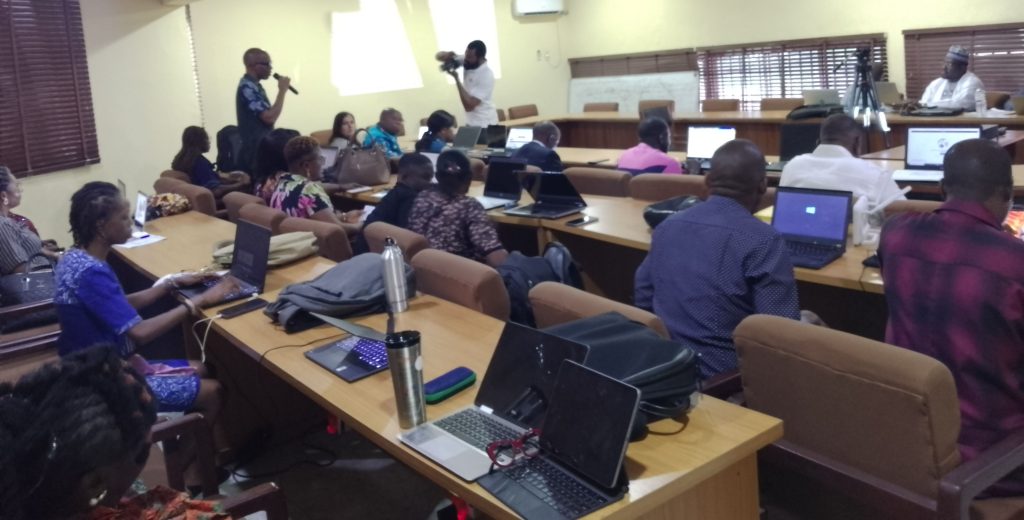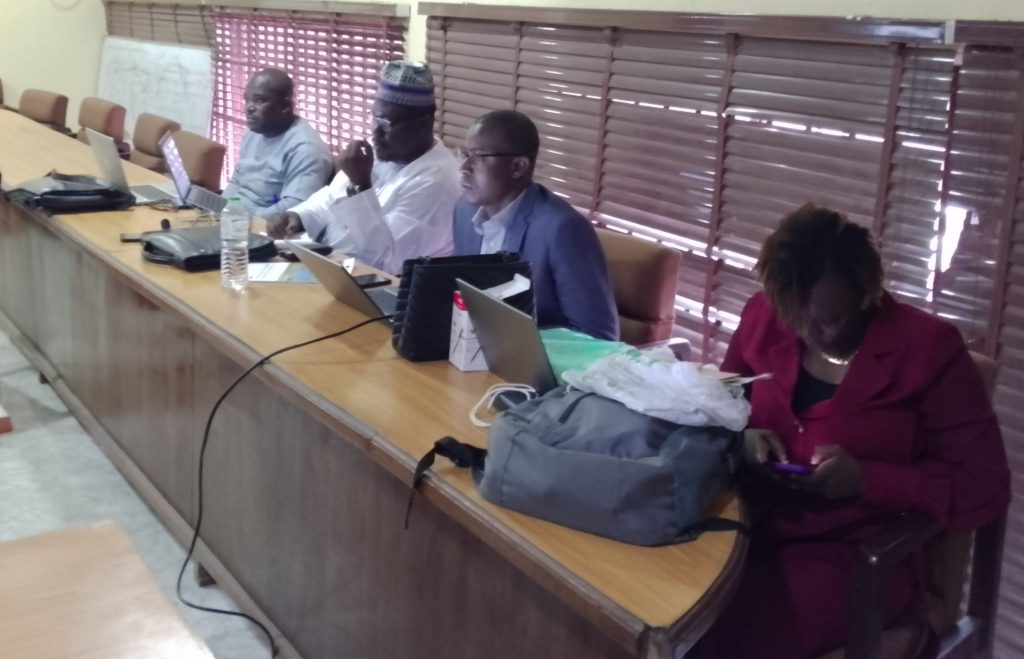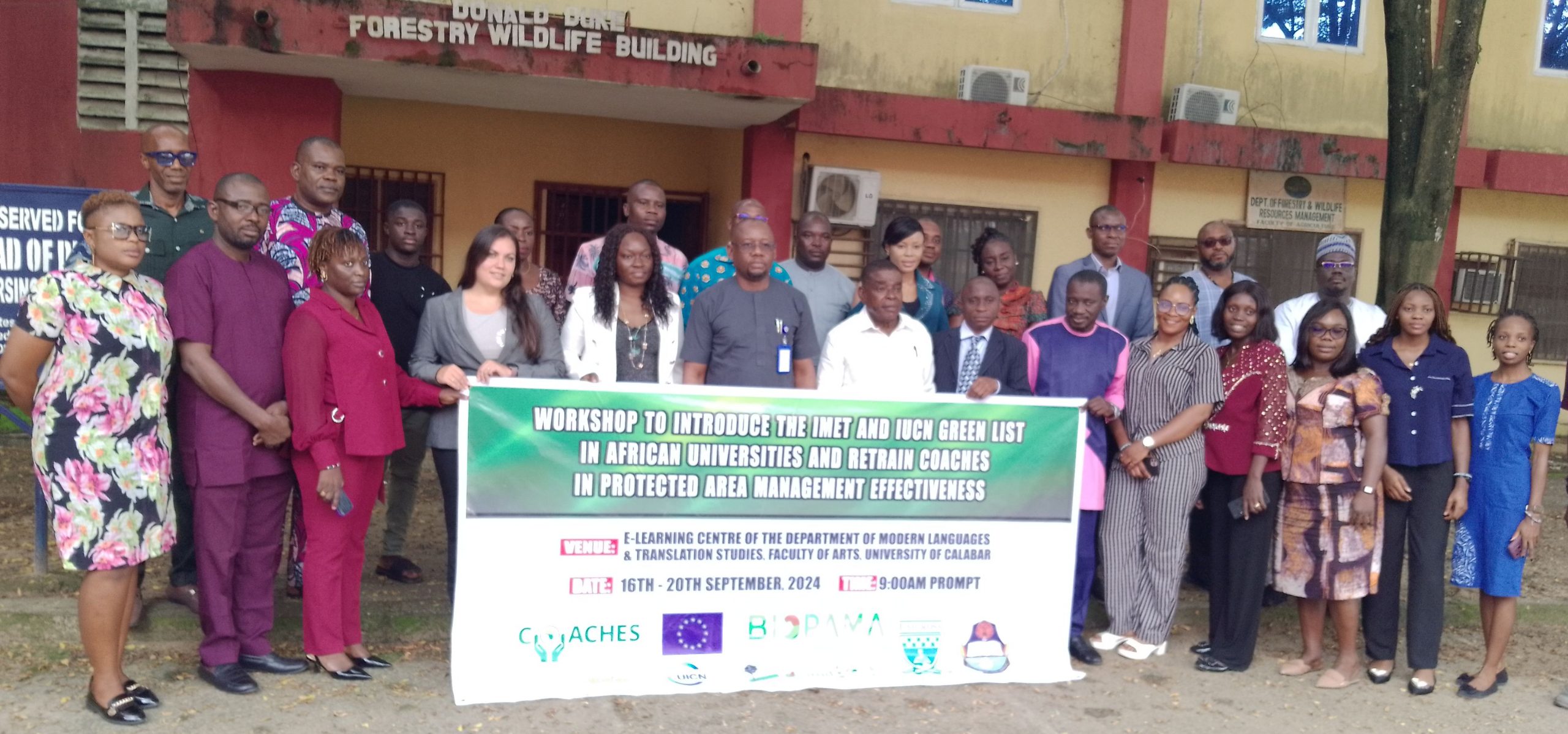By Kelvin Obambon
The Biodiversity and Protected Areas Management (BIOPAMA) Programme has begun a weeklong training workshop on the introduction of the Integrated Management Effectiveness Tool (IMET) and the International Union for Conservation of Nature (IUCN) Green List to the University of Calabar (UNICAL) and the University of Cross River (UNICROSS), respectively.
The workshop which commenced on Monday 16 September, 2024 at the E-learning Center of the Department of Modern Languages and Translation Studies, Faculty of Arts, University of Calabar, is part of a broader effort to introduce IMET and IUCN Green List into the curriculum of universities across the African continent, and the retaining of coaches in protected areas management effectiveness.
Declaring the workshop open, the Acting Vice Chancellor of the University of Calabar, Prof. Peter Okafor, said that it was exciting to host the BIOPAMA workshop because the university management is keen to train and retrain staff and students of the institution.
“Knowledge is very important. What you know will take you to the future. What you don’t know keeps you in the past. The developed world are 20 or 30 years ahead of us because of the knowledge they have acquired. If we can acquire those knowledge, it will take us also to the future. We are where we are today because of the amount of knowledge at our disposal. We are suffering because we lack basic information that will help us.
Read Also: Oil Theft: Troops Destroy 37 Illegal Refining Sites In N’Delta
“We are glad that this workshop will provide opportunity for our staff, our students – both undergraduates and postgraduates to also acquire knowledge,” he said.
While charging participants from the university community to make good use of the rare opportunity to learn as much as they can, the Acting Vice Chancellor noted that with people from other countries taking part in the workshop, UNICAL would have some kind of visibility.
“I happen to be the Deputy Vice Chancellor Research, Linkages and Collaboration. My job is to expose the University to the outside world, and do everything possible to link us internationally, locally, and then also to cooperate with as many bodies as possible that would help us to achieve our principal goal of research, teaching and community service,” Prof. Okafor said, as he welcomed the participants.
Speaking during a brief interview session, a Nigerian-based senior coach and facilitator of the workshop, Sonigitu Ekpe, said “the objective of the training is to be able to introduce IMET into the universities curriculum. We have four professors from the University of Calabar and the University of Cross River State in this training.
“We have 21 undergraduate and graduate students taking part in this training. They will learn the offline tools. IMET is a tool use to assess the management effectiveness of protected areas. Protected areas are like National Parks, conserved areas and reserved areas. We have various categories.
“IMET was developed by the joint research council of the European Union and we have used this tool to do a lot of assessments and the analyses have proved the effectiveness of management interventions and where interventions are needed. It helps to source and advice policymakers on facilitating resources and to protect our National Parks and conserved areas.”
Similarly, Edem Mawu, a coach from Ghana, explained that IMET assesses various protected areas by highlighting the challenges, prospects and successes that would be shared among the international community. He declared that everyone has a stake in the protection of the environment.
On his part, Abednego Gbarway from Liberia, noted that this would be the very first time IMET would be taught in the university. He said the initiative would raise the next generation of conservationists who would protect biodiversity.
Gbarway emphasized that protected areas apart from providing job opportunities for people in rural communities through tracing, have also helped to safeguard endangered species.
Paradise News understands that IMET is a Protected Area Management Effectiveness (PAME) tool that allows an in-depth assessment of marine and terrestrial protected areas, regardless of their management categories and governance type. As a decision-support tool, it helps protected area managers take analysis-based management decisions for improved conservation outcomes.
